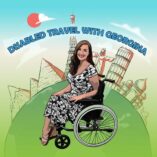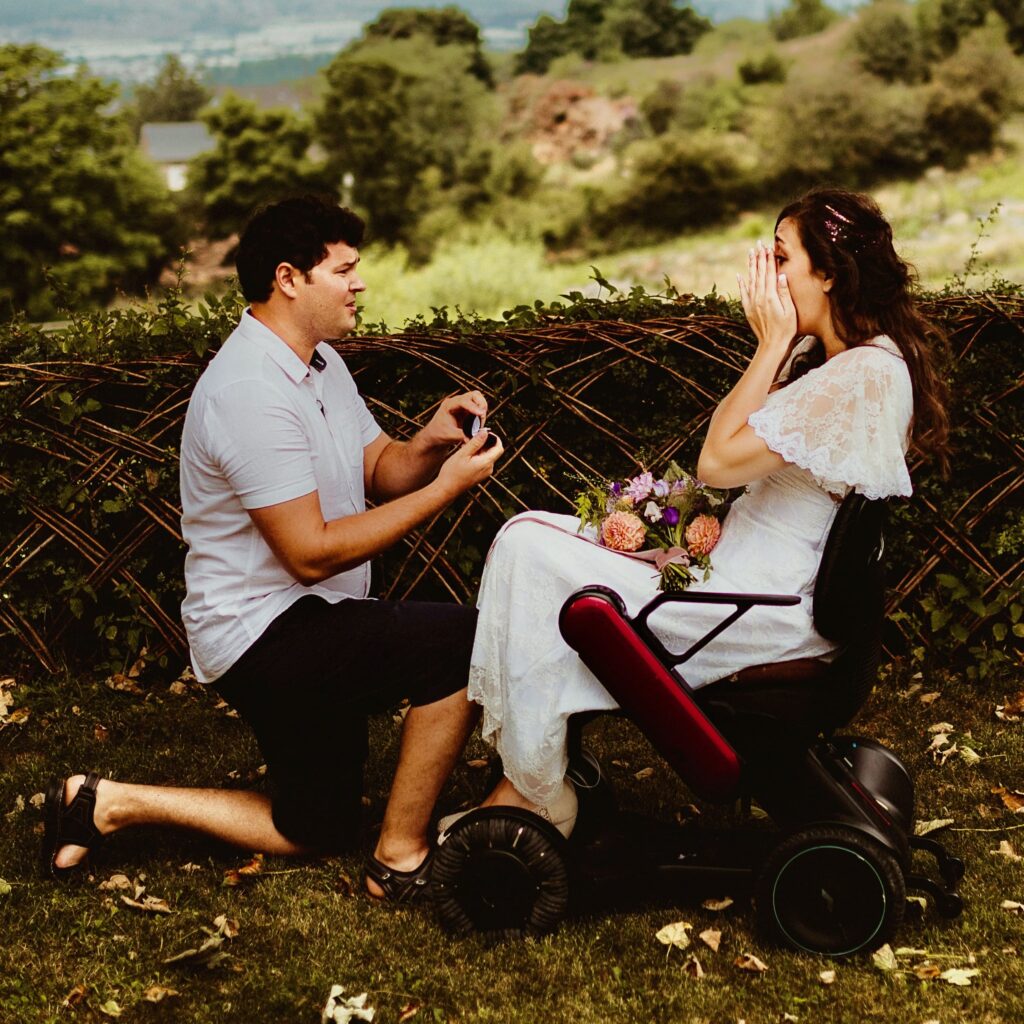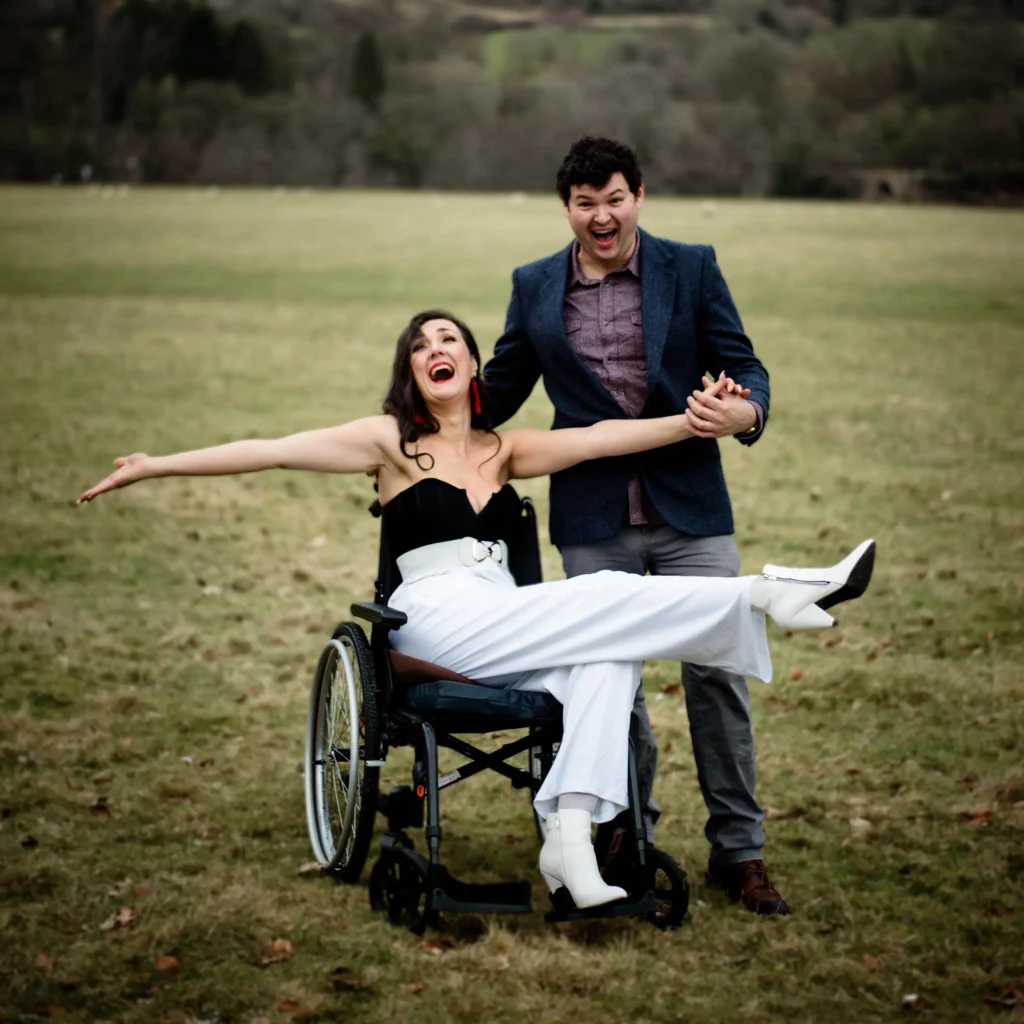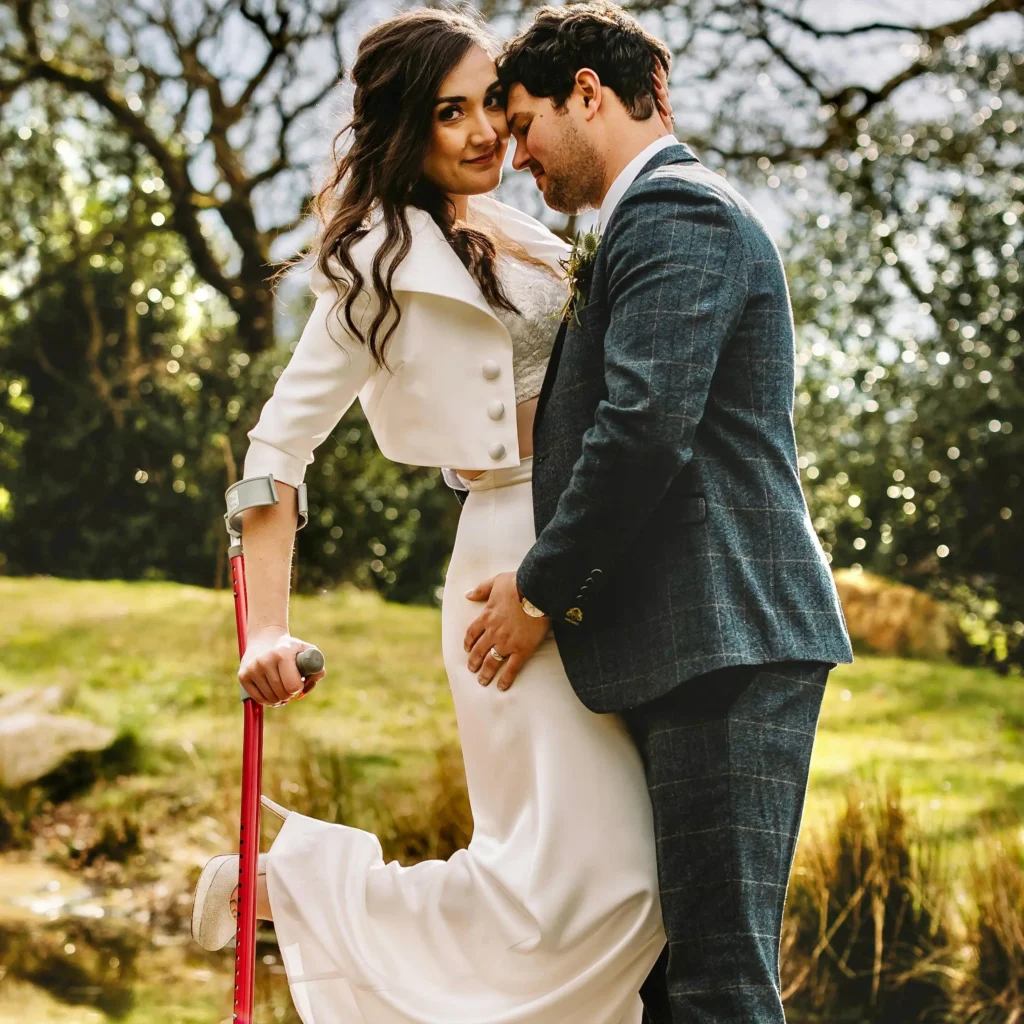It’s no secret that weddings involve a multitude of emails whizzing to and fro between each of your vendors in the months preceding your big day. As time-consuming and stressful as this windfall of emails can seem, it is absolutely imperative that all of these questions are asked and are answered. If you can give each of your suppliers detailed information about your wants and needs then you are far more likely to get a product or service on your wedding day that mirrors what you’re actually looking for. Plus, the more questions that a supplier can ask you in advance, the more assured they can be of your style as a couple and your likes and dislikes. All these little question marks might be flying around like a swarm of bumblebees in your pre-marital mind but at least they’re giving both sides more information. As persistent as these consistent email or phone contacts can be, they should also help you as a couple to feel reassured in this global pandemic that your financial deposits haven’t been handed over for nothing in return! Unless your supplier is having an emergency or two, lack of communication is definitely a wedding red flag if there ever was one…

But what happens if the questions and answers are things that surround your chronic illness and disability? Obviously it is up to you as a bride, groom or future spouse how much medical information you choose to share with the suppliers and vendors who will surround you on your wedding day but sometimes it helps to answer some of the most frequently asked questions. Personally I find that I am fairly open in my daily life about my medical conditions and the impact they have on me physically. However, I completely understand why people find it very hard to talk about medical complications due to the medical trauma we have all experienced in one way or another in hospital. I think also, whether we know it or not, we all have some degree of residual internalised ableism inside; we are so used to pretending that everything is ok with our bodies that it seems totally surreal and strange to talk frankly about the true pain or sickness we are genuinely experiencing rather than pretending that we’re fine and plastering a big fake smile on the whole situation.
I suppose I just decided that I didn’t want to pretend that the pain/ nausea/ fatigue wasn’t there on my wedding day and therefore have a photographer ask me to physically move too much or have a caterer plate too large a portion of food for me since I am always sick everything that is not just a clear liquid. I wanted to be fair to myself and to Richard, my fiancé, so that I could look back on our wedding day with joy rather than regret that I didn’t pace myself more or hold back more when my pain was too high. Plus, I want our photos and videos to show happy, precious moments rather than barely buried moments of pain that are so thinly veiled that I don’t want to display any of my wedding portraiture!
At the crook of the matter, my health issues are private and are nobody’s concern but mine but I did choose to summarise my conditions and how they affect me in a Google Document that I could share with vendors and suppliers. This was such a time-saving idea and actually saved me so much emotional stress too as I didn’t have to broach the subject repeatedly with each supplier. I personally have sixteen chronic illnesses and these each bring awful suffering and flares within my body. Rather than having to repeat these health issues again and again with every enquiry I sent, I could just invite potential photographers, planners, caterers etc to view the document online and ask them to contact me if they had any questions. I loved that this created an open dialogue about my health right from the start. It also allowed me to go into more specific detail with the vendors that needed it such as the photographer who will be directly around us as a couple for most of the wedding day.
Beyond streamlining my day and minimising my suffering and Richard’s worry during the wedding day, this was also a really great educational outreach tool as I found that a few of my suppliers hasn’t worked closely with an inter-abled couple before or hadn’t had a bride who was a full-time wheelchair user. We found that a few of the videographers we contacted seemed rather daunted at the idea of working with a wheelchair user so we wanted to break those nerves and help to educate and enlighten these suppliers, even if we didn’t choose them as our videographers on the wedding day. We shouldn’t really be picking up on hesitation or stand-offish vibes from potential partners as soon as we inform them about the bride’s disability.
Although I should be treated right off the bat in exactly the same way that any bride would be treated, I do understand that there are so many questions and misconceptions that are fuelled by the media and how disabled characters are presented. For example, I have actually worked with a photographer about three years back that was under the impression that the vast majority of wheelchair users were fully paralysed and therefore was visibly shocked when I crossed my legs for a photo! Since I am an active member of the disabled community, I am lucky to know that ambulatory wheelchair users exist and that many people use mobility aids part-time and can walk or even exercise in a way that appears visually “abled” on good days or moments. Basically, I one of the big reasons that I was happy to share my Google Drive document of symptoms and conditions was so I could participate in a reciprocal learning experience with suppliers like my photographer so they can quiz me on how my conditions affect me and how to pose me; I don’t necessarily want photos of me solely seated for the entirety of the wedding of I have the energy or pain levels left to pose differently!
How you share your conditions and symptoms with your vendors or if you decide to share this information at all is of course very private and very individual. The reason I chose to have a document that I shared via Google Drive online was that I have so many conditions and an hour’s initial consultation with a videographer can easily be taken predominantly up by health related concerns if I am not careful. If my symptoms weren’t likely to affect me on my big day or cause me to have to alter how we do things to suit my disability then I might have chosen to keep things more private. However, being a full-time wheelchair user means that I am visibly disabled and my day is going to have to be adapted for my “collection” of sixteen awful chronic illnesses anyway so I might as well have the help and assistance of the lovely humans I am hiring to help make my day special and memorable.
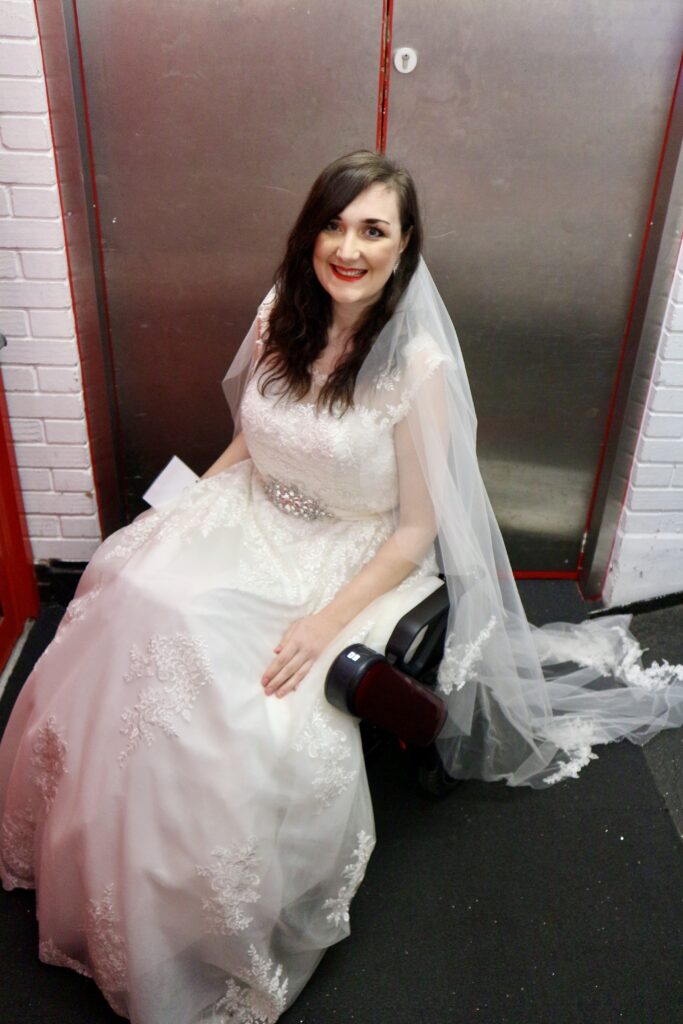
If any of you have any questions about how much medical information you should/ could share with your wedding day vendors then, as always, pop an email across on disabledtravelwithgeorgina@gmail.com and I’ll help as much as possible. I think it’s always helpful to have the experience of people behind you who have chronic illnesses themselves when you are wedding planning as they understand the fluctuations that your conditions go through on an daily basis and how one morning you can conquer multiple choreographed dance pieces but the next you can barely get out of bed. I made sure to try to explain the fluctuations and variety of my conditions in my explanatory document that details all about my health. I also have benefitted from the advice and wisdom from my friend and wedding planner, Philippa from Remembered Occasions (https://rememberedoccasions.com) is an amazing lady with MS herself who specialises in adapting events to suit peoples’ health conditions and disabilities. If you have space in your event budget to even consult a planner for an hour then it would be a good idea to iron out the details of what you actually need and want to tell your own wedding suppliers about your own health. Doing something like Philippa’s hour long consultation chats or working with an alternative planner should hopefully help you to verbalise everything health-wise you want to say and pop it all together in one space. Even if this just helps smooth out any problems that might happen on the actual wedding day for you or even just to save you the emotional stress of having to tell each of the vendors individually later on!
Remember your health and your conditions are part of your wedding experience and if a supplier starts to make you feel like your needs or desires are too much of a problem for them then simply do nit book them. You deserve to feel as special, as prioritised and as important to every vendor as every other wedding couple!
You are going to have the most wonderful day ever and I can’t wait to hear about it, my friends!
